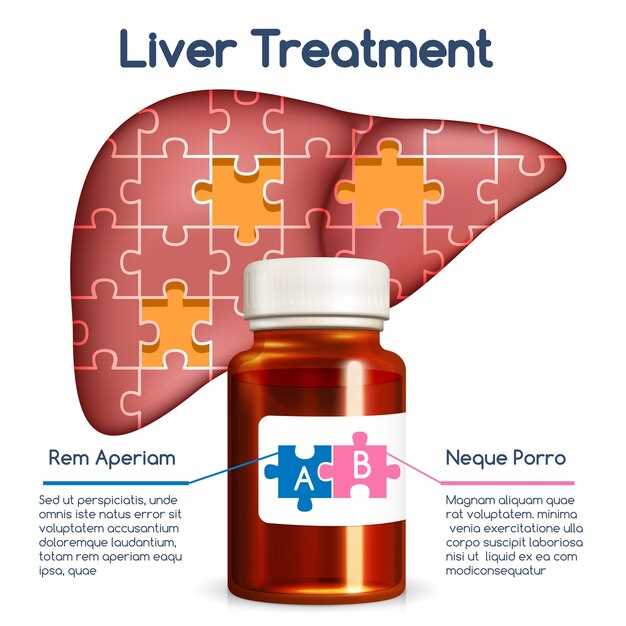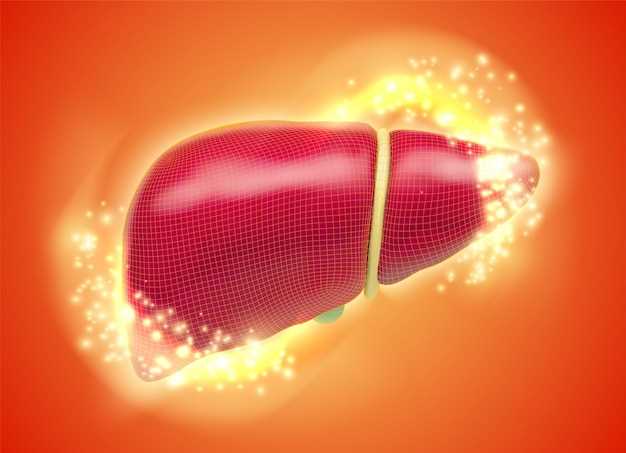
Atorvastatin is a widely prescribed medication used to lower cholesterol levels and reduce the risk of heart disease. Its effectiveness in improving liver function has been extensively studied and proven.
Studies have shown that atorvastatin can help improve liver function in people with non-alcoholic fatty liver disease (NAFLD) by reducing inflammation and helping to break down fatty deposits in the liver.
In addition, atorvastatin has been found to be effective in improving liver function tests in individuals with elevated liver enzymes, indicating potential liver damage.
With its proven effectiveness in promoting liver health, atorvastatin is a valuable medication for individuals looking to improve their overall liver function.
Speak to your healthcare provider today to discuss if atorvastatin may be right for you and to learn more about its potential benefits for your liver health.
Understanding atorvastatin

Atorvastatin is a medication that belongs to a class of drugs called statins. It is commonly prescribed to lower cholesterol levels and reduce the risk of heart disease. By understanding how atorvastatin works, you can make informed decisions about your health.
How does atorvastatin work?

Atorvastatin works by inhibiting the enzyme HMG-CoA reductase, which plays a key role in cholesterol production in the liver. By reducing the activity of this enzyme, atorvastatin helps to lower the levels of LDL cholesterol, often referred to as “bad” cholesterol, in the bloodstream.

Benefits of atorvastatin
- Lowering cholesterol levels: Atorvastatin can significantly reduce LDL cholesterol levels, decreasing the risk of heart disease.
- Reducing the risk of cardiovascular events: By lowering cholesterol levels, atorvastatin can help prevent heart attacks, strokes, and other cardiovascular complications.
- Improving overall cardiovascular health: Atorvastatin has been shown to improve the health of blood vessels and promote better blood flow throughout the body.
- Slowing the progression of atherosclerosis: Atherosclerosis is the buildup of plaque in the arteries, and atorvastatin can slow down this process, preventing the arteries from becoming blocked.
Please consult with your healthcare provider for personalized information about the benefits and risks of atorvastatin.
How atorvastatin affects liver function
Atorvastatin is a medication that belongs to a group of drugs called statins. It is commonly used to lower cholesterol levels and reduce the risk of cardiovascular diseases. However, it is important to understand how atorvastatin affects liver function.
When you take atorvastatin, it works by inhibiting an enzyme called HMG-CoA reductase, which is responsible for producing cholesterol in the liver. By blocking this enzyme, atorvastatin reduces the production of cholesterol, leading to lower levels of LDL (low-density lipoprotein) or “bad” cholesterol in the bloodstream.
However, because atorvastatin affects the liver’s ability to produce cholesterol, it can also have an impact on liver function. Some patients may experience elevated liver enzymes as a result of taking atorvastatin. These elevated levels of liver enzymes may indicate liver inflammation or damage.
It is important to note that liver problems from atorvastatin are rare, but they can occur. If you experience any symptoms of liver damage while taking atorvastatin, such as yellowing of the skin or eyes, dark urine, or persistent abdominal pain, you should contact your healthcare provider immediately. They may need to adjust your medication or run further tests to monitor your liver function.
Monitoring liver function is crucial for individuals taking atorvastatin, especially for those with pre-existing liver conditions. Your healthcare provider may order regular blood tests to evaluate your liver enzymes and ensure that your liver is functioning properly while on atorvastatin. These tests can help detect any potential liver problems early on, allowing for timely intervention and management.
It is important to discuss any concerns or questions about atorvastatin and its effects on liver function with your healthcare provider. They can provide personalized advice and guidance based on your individual health needs.
How atorvastatin affects liver function
Atorvastatin is a medication that belongs to a class of drugs called statins. It is primarily used to lower cholesterol levels and prevent cardiovascular diseases. While atorvastatin is generally safe and effective, it is important to understand how it affects liver function.
When you take atorvastatin, it works by inhibiting an enzyme called HMG-CoA reductase, which is responsible for producing cholesterol in the liver. By blocking this enzyme, atorvastatin helps lower the levels of LDL cholesterol (often referred to as “bad” cholesterol) in the bloodstream.
However, as with any medication, atorvastatin can have side effects. One of the potential side effects is hepatotoxicity, which refers to liver damage or injury. Although hepatotoxicity is rare, it is important to be aware of the symptoms and to monitor your liver function while taking atorvastatin.
Some common signs of liver problems include jaundice (yellowing of the skin or eyes), dark urine, pale stools, fatigue, abdominal pain, and loss of appetite. If you experience any of these symptoms, it is recommended to consult your healthcare provider.
Regular liver function tests, such as blood tests, can also help monitor how atorvastatin is affecting your liver. These tests measure the levels of certain enzymes and proteins in the blood that can indicate liver damage. Your healthcare provider may recommend periodic liver function tests to ensure that your liver is functioning properly.
It’s important to note that while atorvastatin can potentially impact liver function, the benefits of taking the medication often outweigh the risks for individuals with high cholesterol or cardiovascular diseases. It is always best to discuss any concerns or questions you have with your healthcare provider.
Common side effects of atorvastatin
While atorvastatin can effectively lower cholesterol levels and improve heart health, it may also cause certain side effects in some individuals. It is important to be aware of these potential side effects and consult with your doctor if you experience any of them:
Muscle pain and weakness
Some individuals may experience muscle pain and weakness while taking atorvastatin. This can range from mild discomfort to severe pain that affects daily activities. If you notice any unusual muscle symptoms, it is important to inform your doctor immediately.
Headache
Headaches are a common side effect of atorvastatin. If you experience persistent or severe headaches while taking this medication, it is advisable to consult with your doctor to determine the cause and find appropriate treatment options.
Gastrointestinal disturbances
Atorvastatin may cause gastrointestinal disturbances such as nausea, vomiting, diarrhea, or constipation in some individuals. These symptoms are usually mild and go away on their own, but if they persist or become severe, it is recommended to seek medical advice.
Dizziness or lightheadedness
Some individuals may experience dizziness or lightheadedness when taking atorvastatin. This can be due to a drop in blood pressure or other factors. If you feel dizzy or lightheaded, it is important to sit or lie down and seek medical assistance if the symptoms persist.
It is important to note that while these side effects can occur, they are not experienced by everyone taking atorvastatin. It is recommended to follow your doctor’s instructions and report any unusual symptoms or side effects during your treatment with atorvastatin.
Tips to monitor liver function while taking atorvastatin
While taking atorvastatin, it is important to monitor your liver function to ensure its proper functioning. Here are some tips to help you keep track:
- Regularly visit your healthcare provider for liver function tests. These tests can detect any abnormalities in your liver enzymes caused by atorvastatin.
- Be aware of the signs and symptoms of liver problems, such as jaundice (yellowing of the skin or eyes), dark urine, pale stools, abdominal pain, or unexplained fatigue. If you experience any of these symptoms, contact your doctor immediately.
- Avoid excessive alcohol consumption as it can further damage your liver. Alcohol and atorvastatin can both put stress on the liver, so it is important to drink in moderation or abstain from alcohol altogether.
- Keep an eye on your diet. Certain foods can interact with atorvastatin and affect how your liver metabolizes the medication. It is advisable to avoid grapefruit and grapefruit juice, as they can increase the levels of atorvastatin in your body, potentially leading to liver problems.
- Stay hydrated by drinking an adequate amount of water every day. Proper hydration can support liver function and help flush out toxins from your body.
- Inform your healthcare provider about any other medications or supplements you are taking, as they can interact with atorvastatin and affect your liver function. Your doctor can adjust your prescription accordingly.
- Follow the recommended dosage and usage instructions provided by your doctor or pharmacist. Taking more than the prescribed amount of atorvastatin can increase the risk of liver damage.
- Do not hesitate to ask your healthcare provider any questions or concerns you may have regarding atorvastatin and its effects on your liver. They are there to help you and provide guidance.
- Maintain a healthy lifestyle by exercising regularly, eating a balanced diet, and managing your weight. These habits can support overall liver health and minimize the risk of complications.
- Be consistent with your medication schedule. Take atorvastatin at the same time each day to ensure a steady level of the medication in your system.
By following these tips and staying vigilant, you can help monitor your liver function while taking atorvastatin and ensure your overall well-being.
